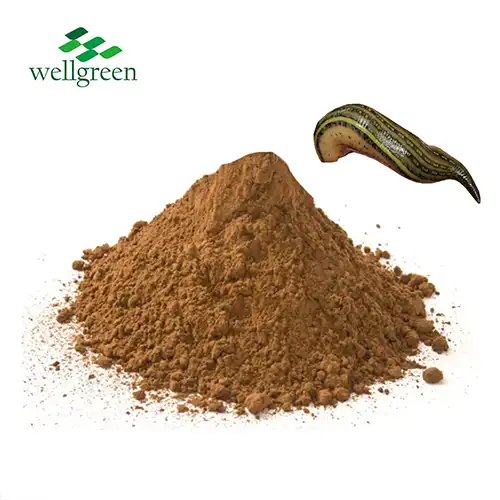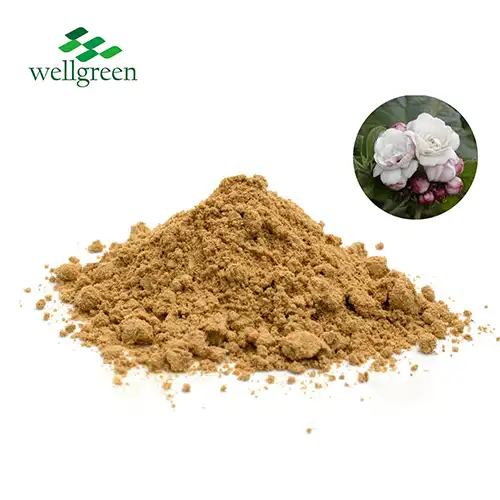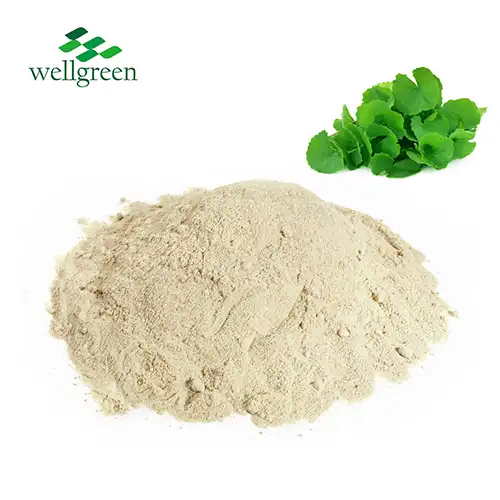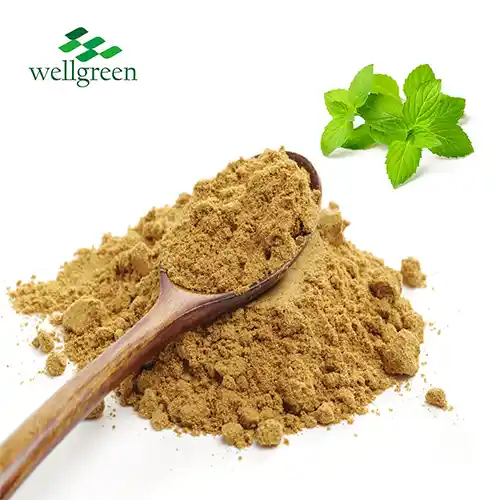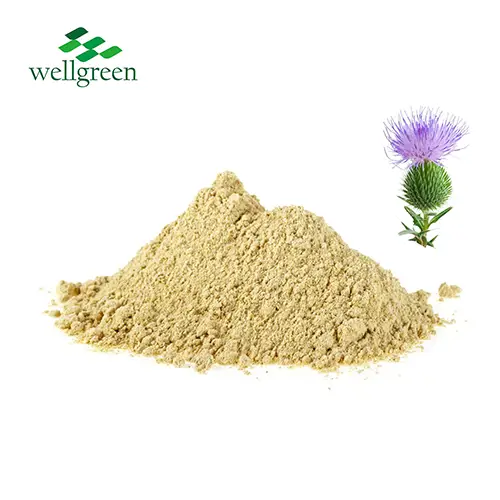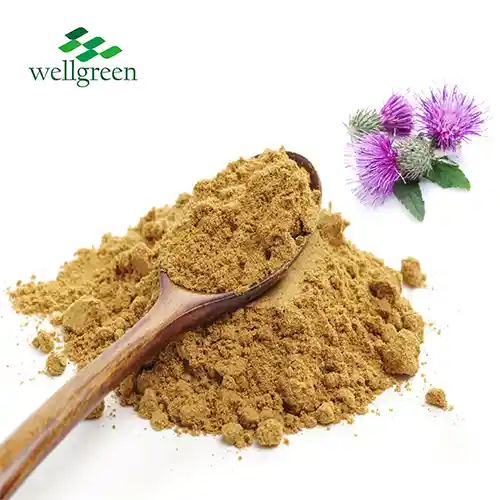Does Fenugreek Increase Estrogen in Females?
2024-02-29 16:13:47
 Fenugreek extract have been generally utilized in different societies for their culinary and medicinal properties. Known for their particular unpleasant taste, fenugreek seeds are plentiful in supplements, including fiber, protein, and fundamental minerals. Fenugreek contains compounds known as phytoestrogens, plant-determined substances that can copy the impacts of estrogen in the body. The essential phytoestrogen in fenugreek is diosgenin, which is accepted to impact estrogenic activity.
Fenugreek extract have been generally utilized in different societies for their culinary and medicinal properties. Known for their particular unpleasant taste, fenugreek seeds are plentiful in supplements, including fiber, protein, and fundamental minerals. Fenugreek contains compounds known as phytoestrogens, plant-determined substances that can copy the impacts of estrogen in the body. The essential phytoestrogen in fenugreek is diosgenin, which is accepted to impact estrogenic activity.
Estrogen is a hormone that is very important to the female reproductive system because it helps regulate the menstrual cycle and supports other bodily functions. Hormonal equilibrium is fundamental for generally speaking wellbeing, and disturbances can prompt different issues. While fenugreek's capability to impact estrogen levels is interesting, scientific examinations explicitly zeroing in on this viewpoint are restricted. Existing exploration frequently includes creature studies, and more human clinical preliminaries are required for definitive proof.
Phytoestrogens in fenugreek may interact with estrogen receptors in the body, leading to estrogenic effects. The extent and significance of this interaction are areas of ongoing research. Responses to fenugreek consumption may vary among individuals based on factors such as genetics, overall health, and existing hormonal levels. Personalized reactions need to be considered when evaluating fenugreek's impact on estrogen.
The relationship between fenugreek and estrogen levels is an area of interest that requires more in-depth research. While fenugreek's phytoestrogenic properties suggest a potential influence on estrogen, its impact on overall hormonal balance in females remains a nuanced topic. Individuals considering fenugreek extract powder supplementation for specific health concerns should seek guidance from healthcare professionals.
How does fenugreek affect women's hormones?
 Fenugreek extract bulk is a versatile herb that has a long culinary and medicinal history. Recently, it has been recognized for its potential effects on the hormones that women produce. This part dives into the many-sided connection among fenugreek and female hormonal equilibrium, investigating both customary purposes and scientific discoveries.
Fenugreek extract bulk is a versatile herb that has a long culinary and medicinal history. Recently, it has been recognized for its potential effects on the hormones that women produce. This part dives into the many-sided connection among fenugreek and female hormonal equilibrium, investigating both customary purposes and scientific discoveries.
One of the notable customary purposes of fenugreek is in supporting lactation for nursing moms. Intensifies in fenugreek are remembered to invigorate milk creation, an advantage credited to hormonal regulation. A few investigations recommend that fenugreek might affect the menstrual cycle by impacting hormonal levels. Its expected job in reducing side effects related with monthly menstrual cycle, for example, cramping, has been investigated. Restricted research has explored fenugreek's impact on testosterone levels, which is pertinent to all kinds of people. The herb might influence androgen levels, possibly adding to hormonal equilibrium. A few examinations have investigated fenugreek's viability in advancing lactation, underscoring its expected job in hormonal pathways connected with breastfeeding. A few clinical preliminaries affect feminine side effects, albeit more exploration is expected to lay out convincing proof. Studies looking at fenugreek's impact on androgen levels have shown shifted results, demonstrating the intricacy of its cooperation with hormonal systems.
The impact of fenugreek on hormones may depend on factors such as dosage and formulation. Consultation with healthcare professionals is advised, especially for those with existing hormonal conditions. Responses to fenugreek can vary among individuals, and its effects on hormones may differ based on factors like age, health status, and hormonal profile. While fenugreek holds promise in influencing women's hormonal aspects, comprehensive research is crucial for a deeper understanding of its mechanisms and potential applications. Women considering fenugreek supplementation should approach it with a nuanced perspective, considering individual health factors and seeking guidance from healthcare providers.
What does fenugreek do to the uterus?
Fenugreek, a versatile herb with a long history of use in traditional medicine, has sparked curiosity regarding its potential effects on the uterus. This article aims to unravel the intricate relationship between fenugreek and uterine health, shedding light on both historical applications and modern scientific insights.
Fenugreek, known scientifically as Trigonella foenum-graecum, has roots in traditional medicine systems such as Ayurveda. Historically, fenugreek seeds were used to address various female health concerns, including menstrual discomfort. Fenugreek has been traditionally recognized for its galactagogue properties, promoting milk production in lactating women. Some historical practices suggest fenugreek's role in uterine health, particularly during postpartum recovery.
 Fenugreek seed extract powder contain a rich array of phytoconstituents, including flavonoids, alkaloids, and saponins. These bioactive compounds contribute to fenugreek's diverse health-related properties. Certain components in fenugreek, such as diosgenin, possess estrogenic properties. Estrogenic activity can influence reproductive tissues, including the uterus. While fenugreek's impact on hormonal balance is acknowledged, direct scientific evidence linking it to specific uterine effects is limited. Existing studies often focus on fenugreek's broader health implications rather than its uterus-specific actions. Research suggests fenugreek may modulate hormonal levels, potentially influencing the menstrual cycle. The extent and specific mechanisms of this modulation warrant further investigation.
Fenugreek seed extract powder contain a rich array of phytoconstituents, including flavonoids, alkaloids, and saponins. These bioactive compounds contribute to fenugreek's diverse health-related properties. Certain components in fenugreek, such as diosgenin, possess estrogenic properties. Estrogenic activity can influence reproductive tissues, including the uterus. While fenugreek's impact on hormonal balance is acknowledged, direct scientific evidence linking it to specific uterine effects is limited. Existing studies often focus on fenugreek's broader health implications rather than its uterus-specific actions. Research suggests fenugreek may modulate hormonal levels, potentially influencing the menstrual cycle. The extent and specific mechanisms of this modulation warrant further investigation.
Some women use fenugreek supplements to address menstrual discomfort. Individual responses to fenugreek can vary, and consulting healthcare professionals is advisable. Fenugreek's historical use as a galactagogue aligns with its potential support for lactating women. While fenugreek is generally considered safe, moderation is key, and medical advice should be sought.
Fenugreek's potential impact on the uterus remains an area of interest, with historical practices hinting at its role in women's health. Scientific evidence, while suggestive of hormonal modulation, falls short of providing definitive conclusions on fenugreek's specific effects on the uterus. As with any herbal remedy, consulting healthcare professionals is crucial, especially for individuals with underlying health conditions or those considering fenugreek supplementation.
Contact Us
WELLGREEN is an innovation-driven manufacturer of herbal extracts since 2011 certified by ISO9001:2015, ISO22000, HALAL, KOSHER, HACCP, and Organic Certificate. If you need fenugreek extract powder, please contact us immediately, E-mail:wgt@allwellcn.com We can supply customized service as per your request.
References:
1. Neergheen-Bhujun, V. S. (2013). The Medicinal Uses of Fenugreek. In Bioactive Food as Dietary Interventions for Liver and Gastrointestinal Disease (pp. 357–366). Academic Press.
2. Khole, S., & Chatterjee, S. (2018). Phytoconstituents and pharmacological activities of Trigonella foenum-graecum L.: A review. Phytotherapy Research, 32(11), 1933–1949.

